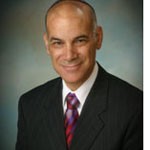By Rabbi Leonard Rosenthal

SAN DIEGO — In this week’s parasha we find one of the most infamous disputes of all Jewish history: that of Korach and his followers. Korach led an uprising against Moses and Aaron. He wanted to remove them from leadership and make himself ruler instead.
Moses challenged him to a “duel.” Korach and Aaron would each offer incense. Whoever’s incense God accepted would be validated as the true leader of Israel. The loser would be decreed when he died an unnatural death.
God accepted Aaron’s offering, but the earth opened up and swallowed Korach and his followers. Q.E.D., Moses and Aaron were the legitimate rulers, Korach was not!
When Moses invited Korach to participate in the test of leadership he said to him, “Come morning, the Lord will make known who is His and who is holy…” According to the Midrash, by using these words (“Come morning) Moses was telling Korach that God has created separations in this world, and that Korach does not have the power to annul them. Just as one cannot eliminate the division between day and night, so can Korach not annul the separation between good and evil, the holy and the profane.” (Rashi)
At face value this is a puzzling midrash. What exactly were the rabbis trying to teach us?
The Maggid of Dubno (Rabbi Jacob ben Wolf Kranz) offered an explanation: ” Just as the human eye can discern between light and dark, so can the soul distinguish between as righteous and wicked. One can no more deny the difference between right and wrong, than deny the difference between day and night. Each is a lie.”
The Maggid illustrated his point with a parable.
A buyer once came to a store in the middle of the night to make a purchase. The shopkeeper immediately turned on the light so that the person could see what they were buying. But when the shop owner tried to show the purchaser the item and explain its beauty, the buyer said that they did not care. They would pay whatever price was asked, regardless.
The shopkeeper immediately walked over to the switch and turned off the lights. “If you don’t care what you are buying and whether or not it is a good deal, we don’t need the light. We might as well do business in the dark!”
This is what Moses tried to tell Korach when he claimed, “All of the community is holy…Why do your raise yourselves above the Lord’s congregation?” (Num. 16:3)
“Do you think everyone here is equal?” asked Moses. “That there is not difference between the righteous and wicked? You are living in spiritual darkness!
“God made separations in the world. Just as there is a difference between day and night, so is there a separation between the righteous and the wicked. You can no more make what is evil good than can you make darkness light! No matter what you say, there will always be a distance between the sacred and the profane, between those who follow God and those who deny God!”
One of the great skills of deceivers is to obscure the difference between right and wrong, good and evil, quality and junk. We must not be led astray by those who try to convince us otherwise and allow our souls to continue to distinguish between right and wrong, just as our eyes distinguish between day and night.
*
Rabbi Rosenthal is spiritual leader of Tifereth Israel Synagogue in San Diego. He may be contacted via. leonard.rosenthal@sdjewishworld.com